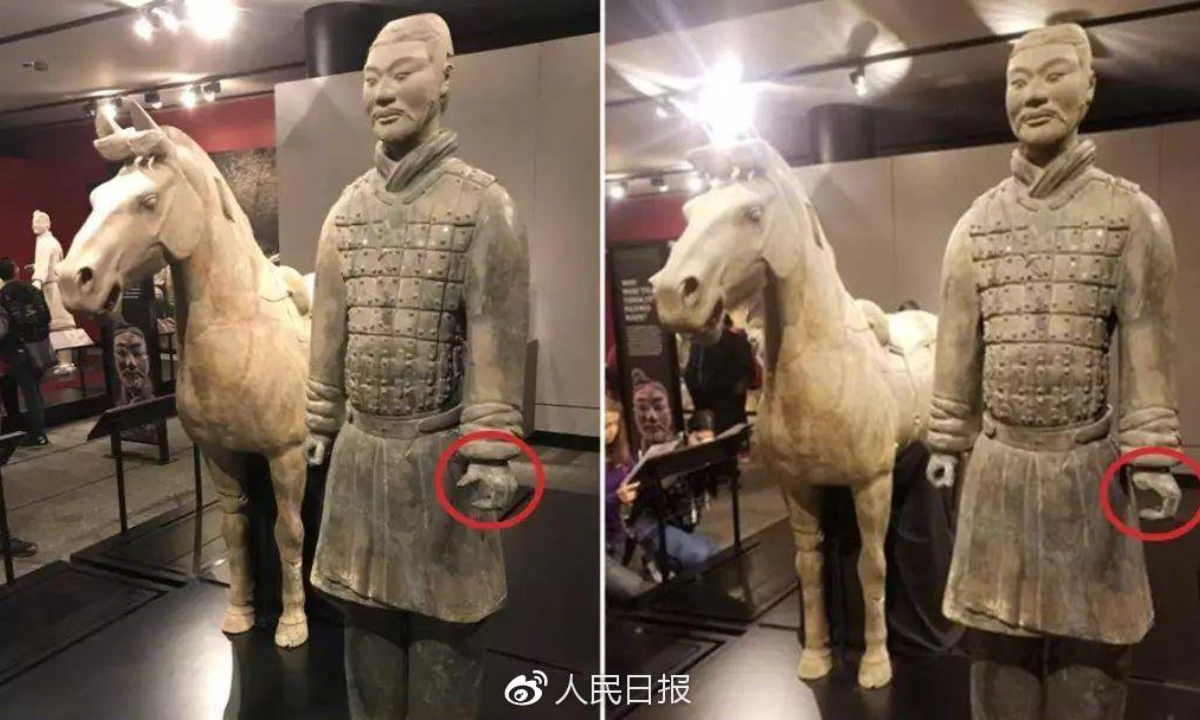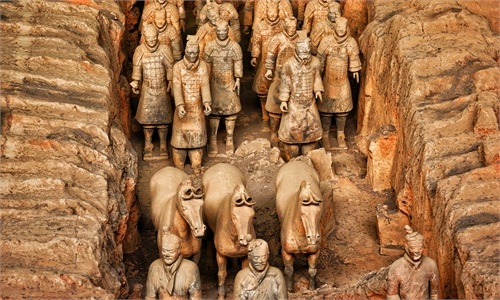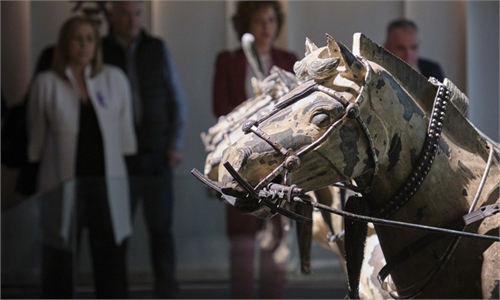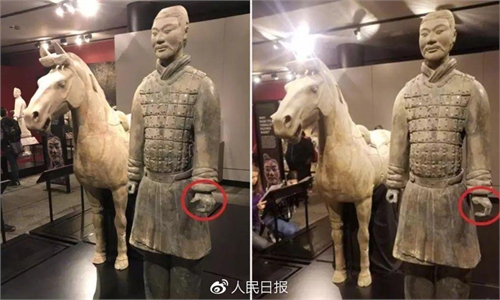Proposed light sentence on vicious US theft stealing terracotta warrior’s finger triggers anger among Chinese

Photo: People's Daily
The news that a US thief admitted to snapping off and stealing a Chinese terracotta warrior's thumb but may be handed a lenient sentence has trended on Chinese social media on Friday and triggered the outcry of many netizens who called for a due, more severe punishment on the perpetrator who damaged the "precious heritage of humanity."
The man, Michael Rohana, snuck into a closed-off section of the Franklin Institute in the US city of Philadelphia, and swiped a finger of a terracotta warrior on loan to the museum from China in 2017. Latest court document revealed that the man is expected to plead guilty later this month to a lesser felony charge of "trafficking archaeological resources." His plea deal offers a lighter maximum sentence, which is a fine of $20,000 and two years in prison. He is scheduled to appear in court on April 17, according to a report by the Washington Post on Thursday.
Rohana was initially charged in 2018 with the theft and concealment of an object of cultural heritage from a museum and interstate transportation of stolen property, offenses that carry a total maximum sentence of 30 years in prison, according to the report.
The reported lesser charge has provoked the anger of many Chinese netizens who slammed at potential penalty as too light.
"The terracotta warriors are a priceless world heritage not only for Chinese but also for all humanity. How could the US institute allow a visitor get so close that can be able to touch the cultural relics? They need stricter protection measures," one netizen commented on China's Twitter-like Sina Weibo.
"This malicious behavior has made us lose trust in the US loan exhibition," another netizen wrote on Weibo.
Media reported that a total of seven terracotta warriors were part of the loan to the Franklin Institute, each insured for $4.5 million. Chinese experts have testified that the cavalryman statue that was swiped dated back to the 3rd century BC for the first Chinese emperor, Qinshihuang. The Terracotta Warriors discovered at the tomb are known as the "Eighth Wonder of the World," and have become a symbol of Chinese culture abroad.
The owner of the exhibits, Shaanxi Cultural Relics Exchange Center, also known as Shaanxi History Museum in Xi'an, Northwest China's Shaanxi Province, issued a statement, noting that such a vicious incident had never occurred in the more than 260 exhibitions overseas in the past four decades. The center stated that it would further initiate an investigation focusing on civil liability according to law, and make economic claims in accordance with the exhibition agreement, demanding that the US party severely punish the perpetrators, CCTV reported.
"Obviously, the Franklin Institute in the US did not pay enough attention to the relevant protection obligations, which violated the contract clauses under the loan agreement between the two parties," Huo Zhengxin, a law professor at the China University of Political Science and Law, told the Global Times on Friday.
According to Huo, the Chinese party can initiate a subsequent procedure by demanding compensation from the US party bearing the corresponding civil liability according to the loan agreement.
He suggested that in the future, when arranging exhibitions overseas, the exhibition agreement should be more specific in detailing security requirements. "During the exhibition period, the other party should take sufficient protection measures in terms of security to prevent similar incidents from happening again. If it happens, the Chinese side needs to stipulate stricter civil compensation liability."




